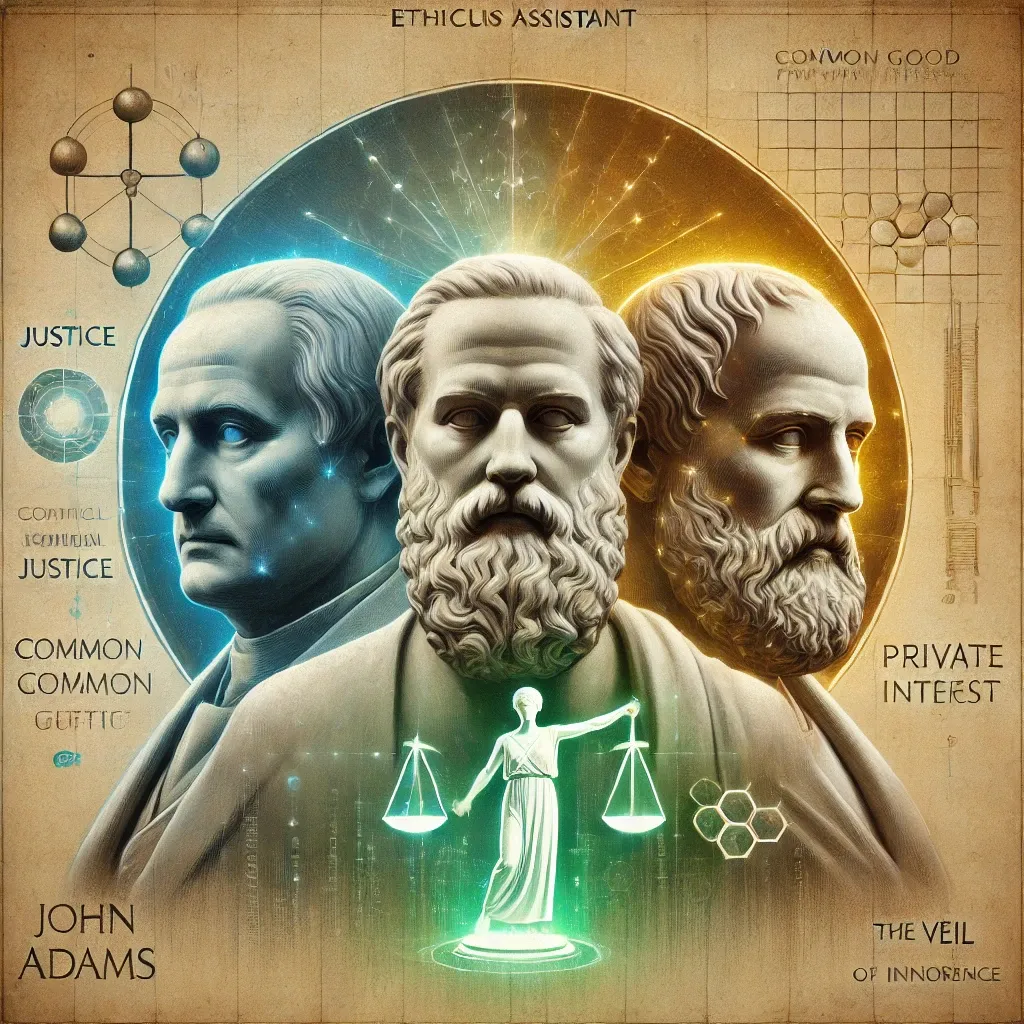Moral Algorithm Tool
Analyze any law, speech, or policy through one clear ethical lens—Adams, Rawls, and Aristotle. Moral Algorithm GPT applies timeless principles to power. One voice. One standard. Every issue.

Here is a link to the tool
🧭 One Voice, One Standard: A New Way to Judge Power
In an era of spin, tribalism, and infinite perspectives, truth can feel like a moving target.
But what if there was one voice—not shouting over others, but grounding the conversation?
Not “left” or “right.”
Not “trust me” or “trust them.”
Just one moral lens. Shared. Stable. Knowable.
Introducing: Moral Algorithm GPT
A political philosophy assistant that analyzes any policy, speech, or government action using a single, principled framework rooted in timeless ethics.
This isn’t moral relativism. It’s moral clarity.
🛠 How It Works
Using the tool is simple:
- Paste a transcript, article, law, or statement.
- Analyze through three ethical foundations:
- John Adams’ Moral Algorithm – Does it serve the common good, or just private power?
- John Rawls’ Veil of Ignorance – Would you agree to this rule not knowing who you’d be under it?
- Aristotle’s Virtue Ethics – Does this action build virtue, justice, and human flourishing?
- Get a structured breakdown:
- Who’s acting?
- What’s being decided?
- Who benefits, who’s harmed?
- Does it align with long-term justice—or short-term interests?
The result? A clear, principled verdict.
No legal jargon. No partisan framing.
Just ethics, applied evenly.
🎯 One Lens. Every Issue.
This tool speaks in one voice—so we can all argue in the same language.
You don’t need to agree on every value.
But if we agree on how to measure values, the debate becomes real.
- Is this law just?
- Is this speech virtuous?
- Is this policy built for everyone—or just for someone?
Moral Algorithm GPT doesn’t replace politics.
It elevates it.
🤖 “But Isn’t AI Biased?”
Yes—and so is everything else.
But this tool doesn’t hide its perspective behind “neutrality.”
It names its framework. It owns its values. And it applies them equally.
It doesn’t say “trust me.”
It says: “Here’s the code. Let’s reason together.”
Bias, in this model, isn’t a flaw—it’s a feature you can inspect.
⚔️ A Tool for Serious Citizens
We don’t need more noise. We need shared tools.
And this one is for people who believe power should be accountable to principle.
Use it to:
- Fact-check a new bill.
- Test a politician’s speech.
- Reflect on policy impact—even your own.
It’s a civic compass in an age of misdirection.
🌍 Why Now?
Because complexity is no excuse for corruption.
Because spin can’t outlast substance.
Because we have the tech now to make ethics public, portable, and powerful.
Moral Algorithm GPT isn’t just for philosophers.
It’s for anyone who’s tired of fighting with shadows—and ready to shine light on real questions:
- Is this fair?
- Is this just?
- Is this who we want to be?
🧩 One Moral Code. Applied to All.
No one escapes the lens—not parties, not pundits, not policies.
That’s the point.
Because when ethics are applied evenly, accountability is no longer optional.
So let’s stop arguing past each other.
Let’s start examining together.
One voice. One position. Every issue.
Moral Algorithm GPT.
Let’s bring principle back into power.
I agree that the Moral Algorithm Tool’s best role is as a compass for moral calibration, keeping the constitutional rudder honest, reflective, and human-centered by providing the Declaration’s moral context—“That to secure these rights, Governments are instituted among Men.” Its 2,400-year philosophical lineage ensures a timeless frame to address post-1971 misalignments (corporate power, inequality). <Grok>
